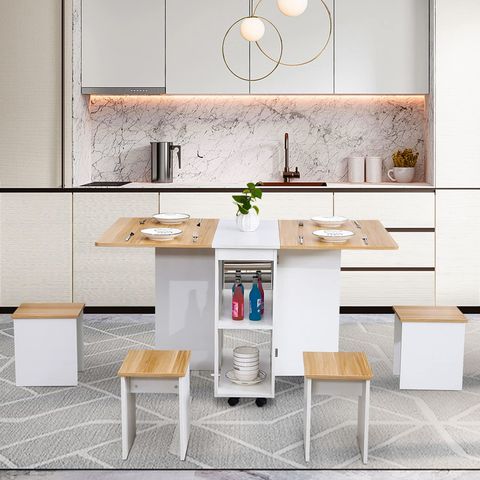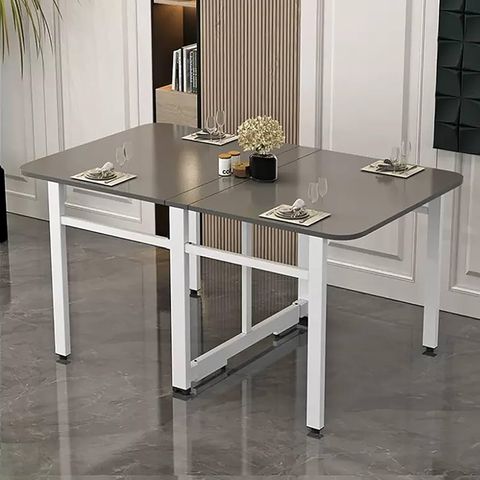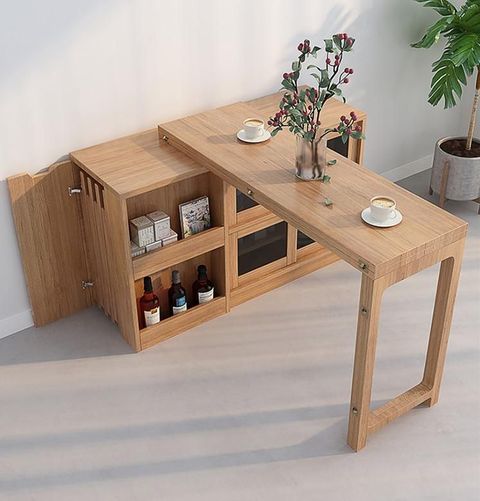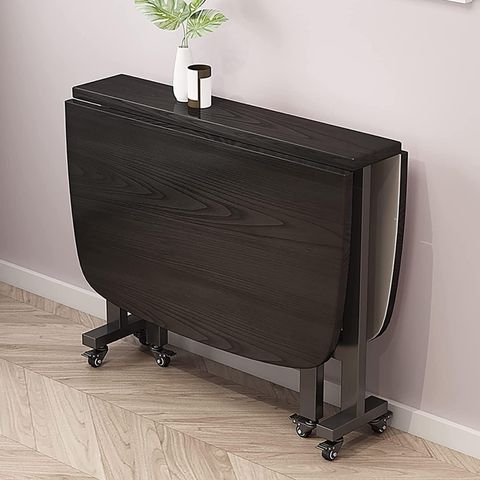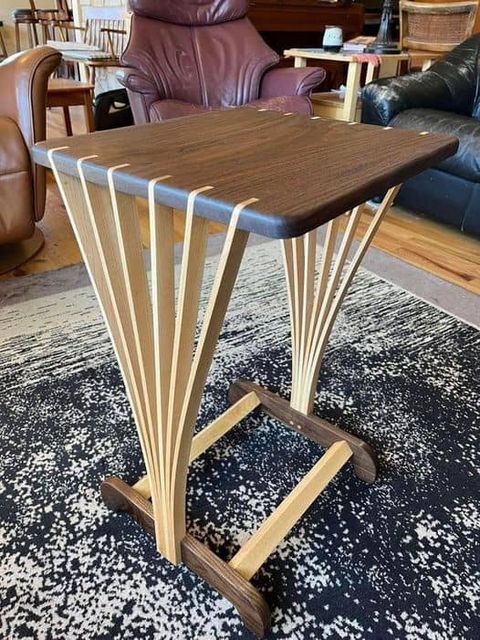Picture this: you’re hosting friends for dinner, but your dining room feels too small. Or maybe you’re cooking alone, yet still want to enjoy a proper meal. Enter the world of space-saving folding dining tables. These ingenious pieces aren’t just about saving space—they’re about creating flexibility that matches how we actually live today.
In our increasingly compact living spaces, finding the perfect balance between function and form has become a daily challenge. Whether you’re navigating a studio apartment, a small family home, or a multi-generational living situation, the traditional fixed dining table often falls short. What if there was a solution that could seamlessly transition from intimate family meals to grand gatherings? That’s exactly what space-saving folding dining tables offer. They’re not just furniture—they’re lifestyle enablers that respond to how we truly live, work, and dine.
The Evolution of Flexible Dining Solutions
The concept of folding dining tables isn’t new, but modern iterations have evolved dramatically. Today’s designs incorporate smart engineering and materials that make them both durable and elegant. Think about it—your dining table shouldn’t just be a static piece that sits in one spot all day. It should be adaptable, responsive to your changing needs. These tables can transform from a cozy breakfast nook to a formal dining area, and even serve as a workspace during the day.
Consider a typical morning routine: you might start with a quick coffee and pastry at the kitchen counter. Later, you could pull out a folding table to enjoy a proper breakfast with family members. In the evening, that same table can be tucked away, freeing up space for a movie night or reading corner. This kind of adaptability isn’t just convenient—it’s revolutionary for how we think about domestic spaces.
Key Features That Make Folding Tables Special
What sets exceptional folding dining tables apart from basic models? Several crucial elements come into play:
• Easy deployment mechanisms: The best folding tables feature smooth, reliable hinges and locking systems that make setup and storage effortless
• Durable construction: Quality materials like solid wood, tempered glass, or reinforced metal ensure longevity despite frequent folding
• Stable design: A well-engineered table maintains its stability whether fully extended or folded away
• Aesthetic appeal: Modern designs blend seamlessly with various interior styles, from rustic to contemporary
These features work together to create a product that doesn’t compromise on either function or beauty. For instance, a table with a hidden storage compartment can hold extra utensils or serving dishes, eliminating the need for separate storage solutions. Similarly, tables with integrated LED lighting can provide ambiance for evening meals while maintaining a clean appearance when not in use.
Choosing the Right Size for Your Space
Size selection is perhaps the most critical factor in choosing a folding dining table. You want something that fits perfectly in your available space without feeling cramped or overly spacious. Here are some considerations:
• Measure carefully: Before purchasing, measure your intended location thoroughly, accounting for doorways, furniture placement, and traffic flow
• Consider your typical guest count: Will you regularly entertain four people or do you prefer intimate dinners with two?
• Think about future needs: If you’re expecting a growing family or planning home renovations, choose a size that can accommodate changes
For example, a 4-foot table might work perfectly for a couple’s breakfast, but could feel limiting for larger family gatherings. On the other hand, a 6-foot table offers more flexibility but requires more storage space when folded. The key is finding that sweet spot where functionality meets efficiency.
Materials Matter: What to Look For
The material choice significantly impacts both performance and aesthetics. Different options suit different lifestyles:
• Wooden tables: Offer warmth and classic appeal, though they may require more maintenance
• Glass surfaces: Provide a modern look and easy cleaning, but can show fingerprints and scratches
• Metal frames: Durability and strength, especially good for high-traffic areas
• Composite materials: Combine benefits of multiple materials while offering enhanced durability
Each material brings unique advantages. For instance, a wooden table might be ideal for a traditional kitchen setting, while a glass top could complement a modern dining area. Some manufacturers now offer hybrid designs that combine wood and metal for maximum versatility. Understanding your home’s style and your usage patterns helps determine which material best suits your needs.
Practical Applications and Real-Life Scenarios
These tables excel in numerous scenarios. Let’s explore some common situations where they shine:
• Studio apartments: Where every square foot counts, a folding table can serve multiple purposes throughout the day
• Small family homes: Perfect for homes with limited dining space that still need to accommodate guests
• Multi-generational households: Can easily adjust to meet the needs of different family sizes and preferences
• Home offices: Many tables double as workspaces, providing a dedicated surface for remote work
Imagine a young professional living in a small apartment. During weekdays, they might use their folding table as a workspace. When evening comes, they can quickly convert it into a dining surface for dinner with roommates. On weekends, it can expand to host friends for casual meals. This kind of seamless transition makes the investment worthwhile.
Maintenance Tips for Longevity
To keep your folding dining table performing optimally, consider these maintenance practices:
• Regular cleaning: Use appropriate cleaners for your specific material to prevent buildup
• Proper storage: When folding away, ensure the table is clean and dry to prevent moisture damage
• Periodic inspection: Check hinges, locks, and joints for wear and tear
• Avoid overloading: Stick to weight limits specified by the manufacturer
Proper care extends the lifespan of your investment significantly. A well-maintained table can last decades, making it one of the most cost-effective pieces of furniture in your home. Regular attention to small details—like lubricating hinges or protecting wood surfaces—can make all the difference in preserving the table’s functionality and appearance over time.
Budget Considerations and Value Factors
Pricing varies widely based on materials, brand, and features. While some entry-level options exist, investing in quality pays dividends. Here’s what to consider:
• Initial cost vs. long-term value: Higher-end tables often provide better durability and fewer replacement costs
• Additional features: Look for built-in storage, integrated lighting, or special finishes that add utility
• Warranty coverage: Strong warranties indicate confidence in product quality
• Resale value: Quality folding tables tend to hold their value better than cheaper alternatives
A $300 table might seem appealing initially, but if it breaks after six months, the true cost becomes much higher. Conversely, a $800 investment in a premium table that lasts fifteen years provides significant value. The key is identifying which features matter most to your lifestyle and prioritizing accordingly.
Space-saving folding dining tables represent more than just functional furniture—they embody a shift toward flexible, adaptive living. As our lives become more dynamic and our living spaces more constrained, these tables offer a practical solution that doesn’t sacrifice style or comfort. Whether you’re maximizing a studio apartment, accommodating growing families, or simply wanting a versatile dining solution, these tables prove that smart design can solve real-world problems. The investment in a quality folding dining table isn’t just about furniture—it’s about creating a home environment that evolves with your needs. The right table can transform your dining experience from rigid and confined to fluid and adaptable, making every meal a more enjoyable part of your daily life.

